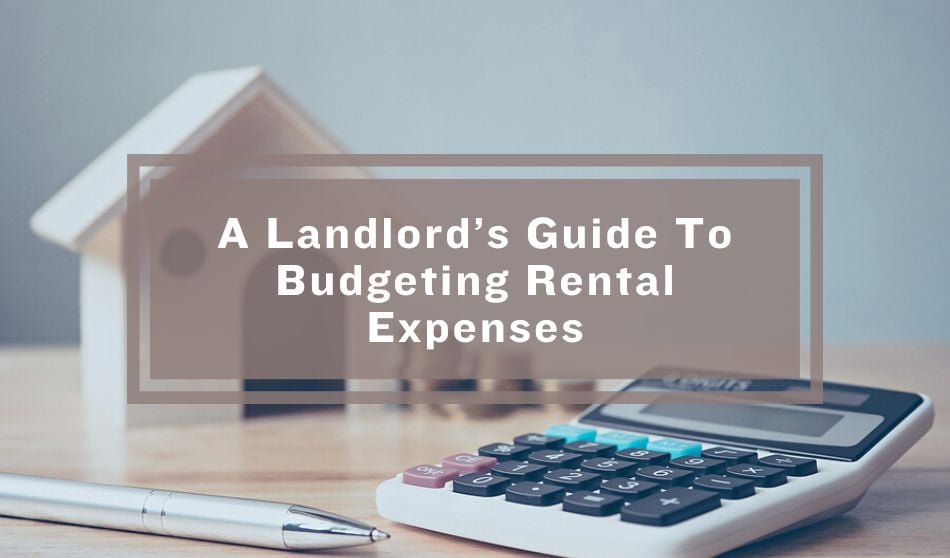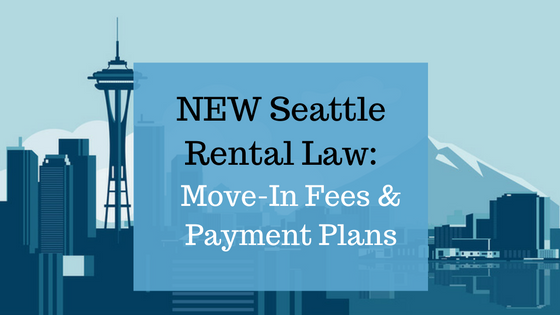
For landlords, budgeting rental expenses accurately and strategically is paramount for financial success in property ownership. A well-planned budget ensures profitability, property maintenance, tenant satisfaction, and legal compliance. Follow practical steps like identifying income sources, listing expenses, planning for vacancies, and creating an emergency fund. Landlords should take advantage of the tools out there to simplify the process with tools for efficient rent collection, expense management, and more.
When managing a rental property, creating a list of all your potential property expenses — be it immediate, ongoing, or future — is a must. By taking a proactive approach to accounting for all associated costs, you’ll be well-prepared to address unexpected financial challenges and emergencies.
If you budget rental expenses accurately, you’ll also be able to ensure your property remains profitable while providing quality housing for tenants. In this comprehensive guide, we’ll explore why budgeting is important, how it can help you make informed financial decisions, and tips for achieving long-term success as a landlord.
The Importance of Budgeting Rental Expenses
Effective budgeting is the foundation of financial success in any business, and rental property ownership is no exception. By creating a detailed budget, landlords can achieve several essential objectives.
Profitability and Financial Stability
A well-thought-out budget helps you manage your finances efficiently, reducing the risk of overspending or underfunding necessary expenses. It also helps you avoid unexpected financial setbacks that can negatively impact your income so that your rental property remains a profitable and sustainable venture.
Quality Property Maintenance
By prioritizing budgeting for property maintenance, not only do you safeguard your investment, but you ensure your property remains in excellent condition, so you can continue attracting and retaining quality tenants. Budgeting enables you to allocate funds for regular property maintenance and handle necessary repairs promptly before they escalate into more significant and costly problems.
Tenant Satisfaction
Budgeting with tenant satisfaction in mind not only boosts the landlord’s reputation but also creates a harmonious and mutually beneficial rental relationship. When tenants are happy and feel that their needs are met, they’re more likely to renew their lease and take better care of your property, reducing turnover rates and related expenses.
Compliance
Property ownership comes with various legal and regulatory obligations. However, when you budget your rental expenses, you can allocate funds for compliance with local laws, ensuring that you operate within the boundaries of the law.
Creating Your Rental Property Budget
Now that we understand why budgeting is essential, let’s dive into the practical steps involved in creating a rental property budget.
1. Identify Income Sources
Start by identifying all potential income sources from your rental property, including monthly rent, various fees such as pet, parking, or vacancy fees, and any other sources of revenue related to your property. Be sure to consider vacancies and potential rental income fluctuations.
2. List Your Expenses
Create a comprehensive list of all the expenses associated with your rental property. These can be categorized into two main types:
Fixed Expenses
- Mortgage or Loan Payments: If you financed your property purchase, this is typically your most significant fixed expense.
- Property Taxes: Know your annual property tax bill and divide it by 12 for a monthly estimate.
- Insurance: Include property insurance premiums in your budget. This is crucial for protecting your investment.
- Property Management Fees: If you use a property management company, factor in their fees.
Variable Expenses
- Maintenance and Repairs: Allocate a percentage of your monthly income for ongoing maintenance and unexpected repairs. The general rule of thumb is to set aside 1% to 3% of your property’s value each year.
- Utilities: If you cover any utilities, such as water, gas, or electricity, account for these expenses in your budget.
- Marketing and Advertising: If you need to market your property to find tenants, budget for advertising costs.
- Tenant-Related Expenses: Consider expenses like background checks, eviction costs, or lease renewal fees.
3. Plan for Vacancies
Since no property remains fully occupied throughout the year, be sure to allocate a portion of your income to cover potential periods without tenants. Although it can vary depending on your location and property type, a common approach is to assume a 10% vacancy rate.
4. Emergency Fund
In addition to regular maintenance and repair costs, it’s wise to create an emergency fund for unexpected major expenses, such as a roof replacement or a major plumbing issue. Having a cushion in place can prevent financial stress when these situations arise.
5. Calculate Your Cash Flow
Once you’ve identified your income sources and listed your expenses, it’s time to calculate your monthly cash flow. This is the difference between your rental income and your expenses. A positive cash flow indicates that your property generates more income than it costs to operate, while a negative cash flow means you’re spending more than you’re earning from the property.
A positive cash flow is generally the goal for rental property owners, as it represents a profitable investment.
Tracking and Adjusting Your Budget
Creating a budget is just the first step. To effectively manage your rental property, you need to continuously track your expenses and adjust your budget as necessary. Here’s how to do that:
1. Use Accounting Software
Consider using accounting software or property management software to streamline expense tracking and income management. By using these tools, you can stay organized and gain insights into your property’s financial performance.
2. Regularly Review Your Budget
Set aside time each month to review your budget and compare it to your actual income and expenses. Doing so allows you to identify any discrepancies or areas where you might be overspending.
3. Make Adjustments as Needed
If you notice a consistent shortfall in your income or expenses exceeding your budget, it’s a clear sign that you need to make adjustments. Whether raising the rent, cutting unnecessary costs, or revising your financial strategy, taking proactive measures can lead to more financial stability and a quality living experience for your tenants.
4. Plan for Future Expenses
Budgeting isn’t just about the present; it’s also about planning for the future. Consider setting up separate savings accounts for specific expenses, such as property upgrades, to ensure you have the funds when needed. Having a long-term perspective on budgeting allows you to anticipate larger capital expenditures like roof replacements, HVAC system upgrades, or landscaping improvements. With sufficient funds in each of these dedicated savings accounts, you’ll be better prepared to handle future needs without straining your day-to-day operational budget and maintain the overall value and appeal of your rental property.
Tips for Efficient Budgeting
Here are some additional tips to help you budget your rental property expenses more effectively:
1. Keep Records
Whether it involves minor repairs, supply invoices, or travel expenses, be sure to save all of your receipts and other detailed records of expenses related to your property. Maintaining these records digitally and in an organized format will not only help with accurate budgeting, but will make the tax reporting and financial analysis process easier.
2. Seek Professional Advice
Consider consulting with a financial advisor or accountant who specializes in real estate investments. Professionals can provide valuable insights and guidance on how to optimize your budget.
3. Stay Informed
Since changes in rental laws or market conditions can impact your budget, it’s crucial to stay informed and adapt accordingly. Keeping a close eye on local rental market trends allows you to make informed decisions about setting rental rates, responding to market demand, and adjusting your budget when necessary. Similarly, staying up-to-date with regulations and compliance requirements ensures that you remain in full legal compliance and avoid any potential financial penalties or disputes with tenants.
4. Prioritize Tenant Retention
When tenants are satisfied and content with their rental experience, it results in fewer expenses related to advertising for new tenants, screening applicants, and preparing the property for new occupants. A stable and reliable tenant base reduces turnover rates, significantly impacting your bottom line.
5. Don’t Commingle Funds
While some landlords may consider consolidating their personal and business expenses in a single bank account, it can create confusion when it comes to distinguishing which costs are associated with rental properties. Establishing a dedicated landlord bank account exclusively for your rental property business not only streamlines income and expense monitoring, but also safeguards your personal assets in case of legal disputes.
6. Develop Positive Relationships
As a landlord, managing your property requires working with many different people — from contractors, accountants, to property managers, and tenants — each of whom contributes to your financial success. By creating positive relationships with all parties involved, you can facilitate smoother communication, especially during financial challenges.
7. Conduct Comprehensive Tenant Screening
With the demand for rental properties consistently increasing, you’ll want to make every effort to secure reliable and suitable tenants. High-quality tenants are more likely to make punctual rent payments, respect your property, and stick around longer, so it’s important not to skimp on the tenant screening process.
8. Use Financial Data As A Forecasting Tool
When it comes to annual expenses, every rental property often has a degree of predictability. Referencing past years’ expenditures can provide valuable insights into the likely financial trajectory ahead. Additionally, landlords venturing into new rental properties can draw upon the lessons learned from prior investments to better anticipate and budget for future endeavors.
Simplify Your Budgeting Process With Property Management Software
With effective budgeting, you can set yourself up for long-term success as a landlord and enjoy the benefits of a thriving rental property portfolio. Property management software enables landlords to effortlessly consolidate key processes such as rent collection, expense management, bill pay, banking, tenant screening, and more. We offer a comprehensive platform that simplifies these crucial processes, saving you valuable time and ensuring a more organized and profitable rental property business.





